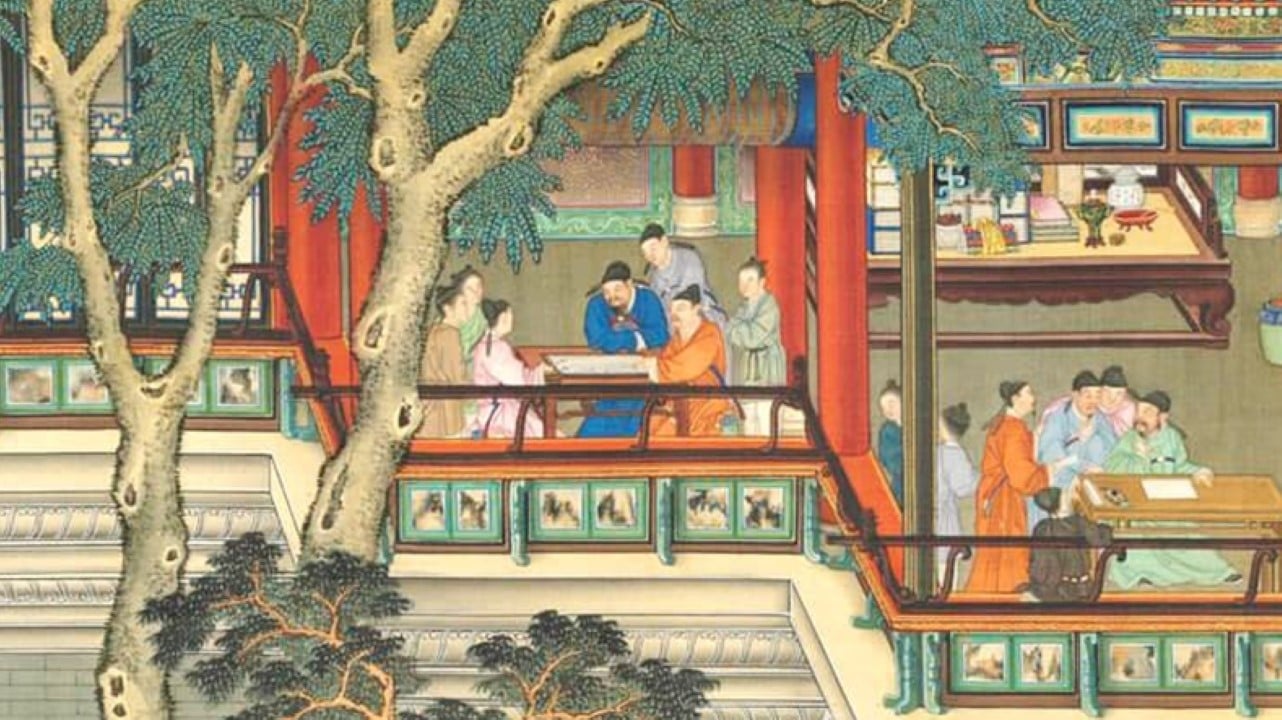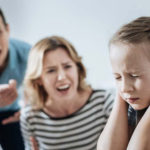The five types of families mentioned below are the root causes of the deepest wounds in children and make them feel unhappy:
1. Family with Unmodel Parents
A mother is like the air, the light, the warmth, and the affection that a family needs.
In a family, if a mother’s personality is too strong and controlling, it can cause children to lose confidence, live without their own initiative, and depend too much on their mother. Moreover, overly strict discipline can easily erase a child’s personality.
There’s an old saying: “Marrying a good woman will bring three generations of wealth.” As women, we can protect ourselves with a confident and decisive outward appearance when we are outside. But when we return home, it’s essential to take off this ‘mask’ and be gentle with our husbands and children.
Research has shown that children with attentive fathers tend to have higher IQs, are more confident and excellent, and are more likely to become successful in society.
Many modern men believe that taking care of children is a woman’s job, and men only need to be responsible for earning money to support the family.
This line of thinking is not advisable, as children need both the love and care of their mother and father during their growth. The absence of either can be detrimental.
While mothers primarily teach their children about love and emotions and how to interact with others, fathers play an extremely important role in a child’s maturation.

These five types of families are the root causes of deep wounds in children, leading to their unhappiness. (Illustrative image)
2. Family with Constant Tension and Neglect
Parents who frequently argue not only make their children feel anxious but also adversely affect their sense of security. This can lead to the development of a weak personality that tends to back down when faced with challenges, bringing only harm and no benefit to the child’s development.
Some psychologists believe that when parents are physically present but emotionally detached, such as when they are absorbed in their mobile phones while with their children, it is akin to emotional neglect.
Children are highly impressionable and tend to imitate their parents’ behavior. So, when parents are constantly on their phones, children will follow suit. Therefore, don’t wait until your child becomes addicted to their device to realize the harmful effects of mobile phones.
A student once wrote in an essay: “What do you want to be when you grow up?” The student replied: “I want to be a mobile phone.” When asked why, the student answered: “Because my parents are always holding their phones, and I just want the same attention.”
3. Family with Physical and Verbal Abuse
Some children share heartbreaking stories of their parents constantly berating them as “good-for-nothings” and “worthless.” This makes them feel that their existence has no value.
Children with unhappy childhoods, often scolded and disciplined with physical punishment, can develop two extreme personalities: one becomes timid and insecure, prone to pessimism and despair, while the other becomes rebellious and confrontational.
When children make mistakes, the wisest educational approach is to demonstrate both love and wisdom as a parent.
True education starts from the heart—it’s about heart-to-heart communication, not relying on scolding, which only instills self-doubt and a lack of self-belief.
4. Family with Constant Financial Complaints
When children are constantly exposed to their parents’ complaints about financial struggles, they tend to become overly concerned about money. Even when they grow up and have their own money, they may become stingy, which can hinder their social interactions.
Growing up in an environment of constant financial worry can make it difficult for children to feel secure. They may become distrustful of others and only find solace in the cold, hard numbers in their savings accounts.
It’s essential for parents to instill a healthy perspective about money in their children from an early age, ensuring that “money” and material possessions don’t overshadow their lives.
The loving and encouraging words you speak to your children are the medicine that ensures their inner peace.
5. Orphaned or Children of Divorce
Children who find themselves in these circumstances are among the unhappiest. They are born and then abandoned by their parents, either through death or divorce, leaving them adrift, without a sense of belonging, and often facing hunger, cold, and loneliness.
When a child does not receive the love, care, and education they need from their family, they lack the foundation to become a well-adjusted adult.
These family types are the root causes of the deepest wounds in children, making them feel the unhappiest. Therefore, it is crucial for parents to be mindful of these issues and make changes to their lifestyles and parenting approaches to provide their children with a healthy and nurturing environment.
The Power of Parental Words: Nurturing Children with a Conscious Tongue
“The power of words is often underestimated; many believe that only actions have consequences. However, this couldn’t be further from the truth. Words, especially those of parents, can shape a child’s life trajectory. A single sentence can either empower or discourage, and these subtle influences can have a profound impact on a child’s future. It’s time we recognize the weight that our words carry and use them with intention and care, for they have the ability to transform lives.”


































